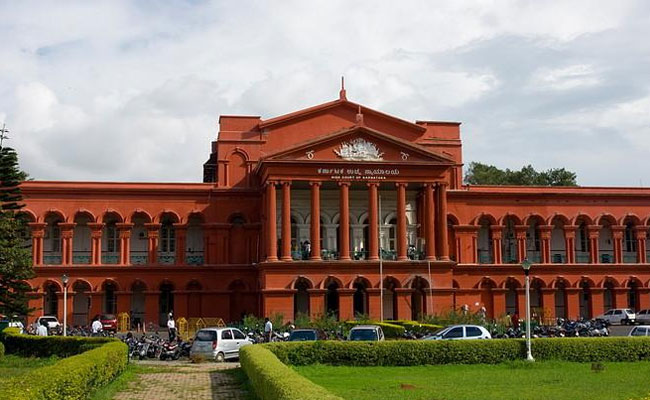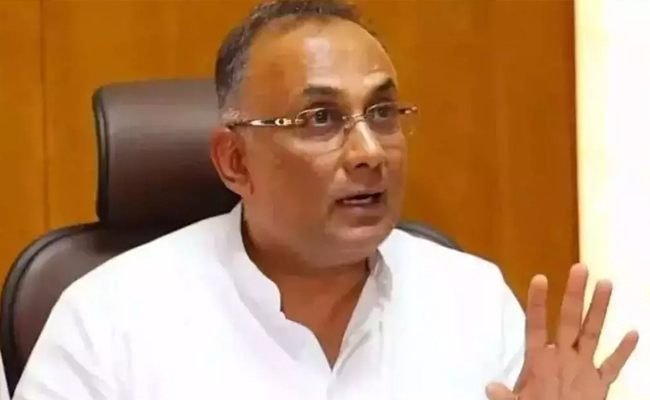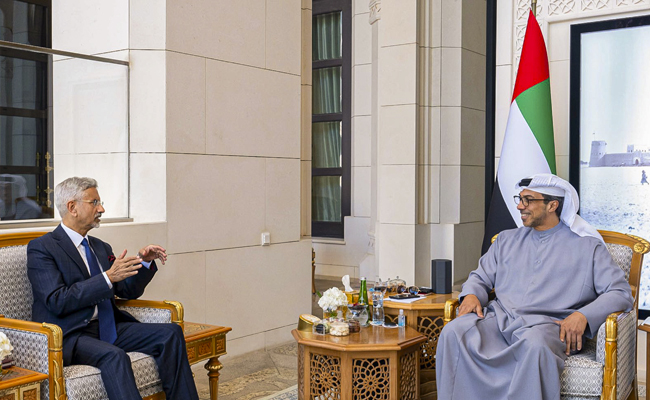Bengaluru (PTI): Marriage does not do away with the procedural rights of a person to divulge his personal information, a Division Bench of the High Court has said.
Setting aside the order of a single judge, the Division Bench comprising Justice Sunil Dutt Yadav and Justice Vijaykumar A Patil, said the procedure under Section 33 of the Aadhaar Act has to be followed even if the person seeking information is the wife.
As per Section 33(1), the power of passing an order to divulge the information is conferred on a Court not inferior to that of a Judge of the High Court. But the HC noted that the single judge order had directed an authority lower than that to divulge the details.
The "learned Single Judge has grossly erred in directing the Assistant Director General, Central Public Information Officer (UIDAI) to issue notice to a person whose information sought to be divulged and to decide whether such information is to be divulged. It is a settled principle that, if the Act provides that a particular act is to be made in a particular manner, it should be done in such manner or not at all," the Division Bench said.
The woman, from Hubballi in north Karnataka, has sought information on the address of her husband mentioned in his Aadhaar card from the Public Information Officer (UIDAI). She was trying to enforce a family court order against the husband directing to pay maintenance to her.
But he was absconding. The officer replied that an HC order was necessary to divulge the details after which she approached the single bench. The single bench order was challenged by the Central Public Information Officer (UIDAI).
The HC accepted the arguments against the single judge order.
Citing the Apex Court in the K S Puttaswamy case, the Division Bench said, "The right to privacy of Aadhaar number holder preserves the autonomy of the individual's right to privacy which is conferred primacy and admits of no exception under the statutory scheme.
The relationship by marriage which is a union of two partners does not eclipse the right to privacy which is the right of an individual and the autonomy of such individual's right stands recognised and protected by the procedure of hearing contemplated under Section 33. The marriage by itself does not do away with the procedural right of hearing conferred under Section 33 of Aadhaar Act.".
The Division Bench also noted that the husband has not been made a party before the single bench. It remitted the matter back to the single bench and said, "The above discussion would clearly lead to a conclusion that a person whose information is to be divulged is to be arrayed as respondent to the proceedings before the learned Single Judge. Accordingly, we remit the matter to the learned Single Judge, wherein the husband of the petitioner is to be arrayed as respondent. An undertaking is made by the petitioner/wife that necessary amendment would be carried out to array the husband as respondent in a writ proceedings."
Let the Truth be known. If you read VB and like VB, please be a VB Supporter and Help us deliver the Truth to one and all.
New Delhi: A bill to set up a 13-member body to regulate institutions of higher education was introduced in the Lok Sabha on Monday.
Union Education Minister Dharmendra Pradhan introduced the Viksit Bharat Shiksha Adhishthan Bill, which seeks to establish an overarching higher education commission along with three councils for regulation, accreditation, and ensuring academic standards for universities and higher education institutions in India.
Meanwhile, the move drew strong opposition, with members warning that it could weaken institutional autonomy and result in excessive centralisation of higher education in India.
The Viksit Bharat Shiksha Adhishthan Bill, 2025, earlier known as the Higher Education Council of India (HECI) Bill, has been introduced in line with the National Education Policy (NEP) 2020.
The proposed legislation seeks to merge three existing regulatory bodies, the University Grants Commission (UGC), the All India Council for Technical Education (AICTE), and the National Council for Teacher Education (NCTE), into a single unified body called the Viksit Bharat Shiksha Adhishthan.
At present, the UGC regulates non-technical higher education institutions, the AICTE oversees technical education, and the NCTE governs teacher education in India.
Under the proposed framework, the new commission will function through three separate councils responsible for regulation, accreditation, and the maintenance of academic standards across universities and higher education institutions in the country.
According to the Bill, the present challenges faced by higher educational institutions due to the multiplicity of regulators having non-harmonised regulatory approval protocols will be done away with.
The higher education commission, which will be headed by a chairperson appointed by the President of India, will cover all central universities and colleges under it, institutes of national importance functioning under the administrative purview of the Ministry of Education, including IITs, NITs, IISc, IISERs, IIMs, and IIITs.
At present, IITs and IIMs are not regulated by the University Grants Commission (UGC).
Government to refer bill to JPC; Oppn slams it
The government has expressed its willingness to refer it to a joint committee after several members of the Lok Sabha expressed strong opposition to the Bill, stating that they were not given time to study its provisions.
Responding to the opposition, Parliamentary Affairs Minister Kiren Rijiju said the government intends to refer the Bill to a Joint Parliamentary Committee (JPC) for detailed examination.
Congress Lok Sabha MP Manish Tewari warned that the Bill could result in “excessive centralisation” of higher education. He argued that the proposed law violates the constitutional division of legislative powers between the Union and the states.
According to him, the Bill goes beyond setting academic standards and intrudes into areas such as administration, affiliation, and the establishment and closure of university campuses. These matters, he said, fall under Entry 25 of the Concurrent List and Entry 32 of the State List, which cover the incorporation and regulation of state universities.
Tewari further stated that the Bill suffers from “excessive delegation of legislative power” to the proposed commission. He pointed out that crucial aspects such as accreditation frameworks, degree-granting powers, penalties, institutional autonomy, and even the supersession of institutions are left to be decided through rules, regulations, and executive directions. He argued that this amounts to a violation of established constitutional principles governing delegated legislation.
Under the Bill, the regulatory council will have the power to impose heavy penalties on higher education institutions for violating provisions of the Act or related rules. Penalties range from ₹10 lakh to ₹75 lakh for repeated violations, while establishing an institution without approval from the commission or the state government could attract a fine of up to ₹2 crore.
Concerns were also raised by members from southern states over the Hindi nomenclature of the Bill. N.K. Premachandran, an MP from the Revolutionary Socialist Party representing Kollam in Kerala, said even the name of the Bill was difficult to pronounce.
He pointed out that under Article 348 of the Constitution, the text of any Bill introduced in Parliament must be in English unless Parliament decides otherwise.
DMK MP T.M. Selvaganapathy also criticised the government for naming laws and schemes only in Hindi. He said the Constitution clearly mandates that the nomenclature of a Bill should be in English so that citizens across the country can understand its intent.
Congress MP S. Jothimani from Tamil Nadu’s Karur constituency described the Bill as another attempt to impose Hindi and termed it “an attack on federalism.”



_vb_22.jpeg)

